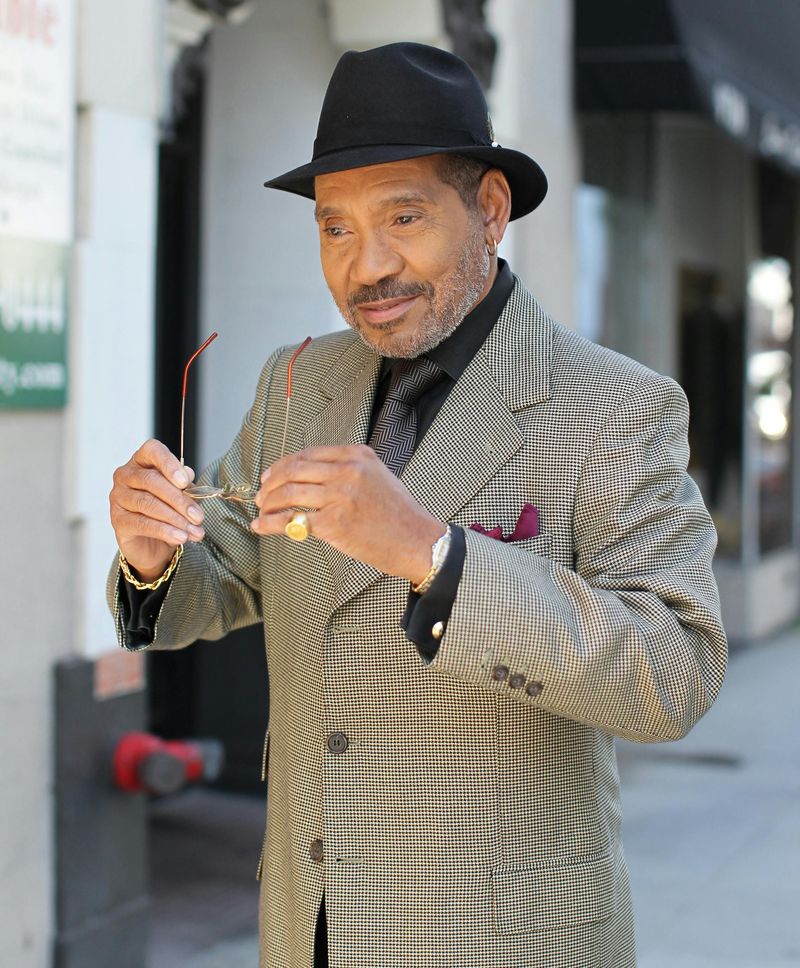Before self-help books and motivational TikTok videos, Baby Boomers grew up hearing simple yet powerful phrases that shaped their outlook on life. These old-school sayings weren’t just empty words – they were practical life lessons passed down through generations. The wisdom contained in these brief expressions helped build the grit and determination that many associate with the Boomer generation.
1. Waste not, want not.

Depression-era parents watched their own families survive on nearly nothing. They passed this frugal mindset forward, teaching Boomers to squeeze value from everything they owned.
Children learned to save string, reuse wrapping paper, and wear hand-me-downs without complaint. Leftovers became creative new meals, and broken items were repaired instead of replaced.
This philosophy created a generation that understood the connection between conservation and security. The satisfaction of making things last became deeply ingrained, creating adults who found genuine pride in resourcefulness rather than excessive consumption.
2. Make do with what you’ve got.

Grandma’s kitchen creativity during lean times wasn’t just about stretching dollars—it was teaching a philosophy. When the pantry looked bare, she’d somehow conjure up a meal that fed everyone.
This saying encouraged Boomers to see possibilities instead of limitations. Rather than complaining about what they lacked, they learned to innovate with available resources.
During economic downturns or personal setbacks, this mindset became invaluable. The ability to adapt and create solutions from limited means has served this generation through countless challenges, from recession-era budgeting to workplace problem-solving.
3. If at first you don’t succeed, try, try again.

Little Jimmy’s wobbly bicycle attempts ended in skinned knees and tears. His father’s response? This timeless reminder to get back up and keep pedaling.
The saying normalized failure as part of learning, not a reason to quit. Boomers internalized this message during countless childhood challenges—from mastering multiplication tables to making baseball teams.
Unlike today’s emphasis on immediate success, this approach celebrated the process of improving through repeated effort. The resilience built through these early lessons prepared Boomers for adult challenges in careers, relationships, and personal goals.
4. Don’t put all your eggs in one basket.

Farm life taught practical lessons about risk management long before financial advisors existed. Watching a careless child drop their basket of freshly gathered eggs created a powerful visual metaphor.
For Boomers, this saying became a guiding principle about diversification. Whether planning career paths, retirement savings, or even social connections, they learned to spread their resources and opportunities.
This cautious approach helped many weather economic storms throughout their lives. When one industry collapsed or investment faltered, they had alternatives to fall back on—a strategy that proved particularly valuable during market crashes and recessions.
5. You can’t always get what you want.

Long before the Rolling Stones made it famous, this phrase echoed through Boomer childhoods. When the toy store visit ended without the coveted item, parents delivered this reality check with firm compassion.
The lesson stuck: desires and outcomes don’t always align. Instead of breeding resentment, this teaching fostered patience and realistic expectations.
Boomers grew up understanding that disappointment wasn’t the end of the world. They developed the emotional muscles to handle setbacks gracefully—a skill that would serve them through careers, relationships, and life’s inevitable ups and downs.
6. What doesn’t kill you makes you stronger.

Coach Miller barked this phrase as teenagers pushed through grueling football practice in August heat. The message wasn’t about being tough for toughness’ sake—it was about transformation through challenge.
Boomers encountered this philosophy repeatedly throughout their formative years. From academic pressures to first heartbreaks, adults in their lives reinforced that difficulty builds character.
The approach might seem harsh by today’s standards, but it created a generation that didn’t shy away from hardship. Many Boomers developed remarkable psychological resilience, viewing obstacles as opportunities to develop strength rather than unfair burdens to avoid.
7. Don’t cry over spilled milk.

When little Susan knocked over her glass at dinner, her mother’s response wasn’t anger but this pragmatic saying. The lesson was immediate: clean it up and move forward.
This simple phrase taught Boomers to distinguish between fixable problems and genuine tragedies. Small setbacks weren’t worth emotional energy—action was more valuable than regret.
As adults navigating career changes, family challenges, and financial decisions, this mindset proved invaluable. Rather than dwelling on past mistakes or unfortunate circumstances, they developed the habit of focusing on solutions and next steps.
8. A penny saved is a penny earned.

The piggy bank wasn’t just a toy—it was a financial education tool. Grandpa would drop in a nickel while sharing this wisdom about the value of saving over spending.
Boomers grew up watching their parents maintain meticulous household budgets, often at kitchen tables with paper ledgers. The satisfaction of watching savings grow became a powerful motivator.
This early financial literacy shaped lifelong habits. Many Boomers developed impressive discipline around money management, understanding that controlling spending was as important as earning income—a perspective that helped many build substantial retirement savings despite economic fluctuations.
9. This too shall pass.

Aunt Martha whispered these words while holding her niece after a devastating breakup. The ancient wisdom offered something more valuable than false cheerfulness—perspective.
During childhood illnesses, school disappointments, and teenage heartaches, this saying reminded Boomers that pain has a timeline. Nothing, good or bad, remains permanent.
The phrase became an emotional anchor during adult crises from job losses to health scares. Many Boomers developed remarkable emotional resilience by understanding that difficult feelings and circumstances eventually transform, making it possible to endure present hardships with hope for the future.
10. You reap what you sow.

Dad’s vegetable garden wasn’t just for growing tomatoes—it was for growing character. He’d point to neglected plants withering beside thriving ones while sharing this timeless lesson about consequences.
The agricultural metaphor resonated deeply with young Boomers. They witnessed firsthand how consistent effort led to harvest, while neglect led to failure.
This principle shaped their approach to education, careers, and relationships. Many developed strong work ethics and personal responsibility, understanding that outcomes directly reflect inputs. The connection between actions and results became a core belief that guided major life decisions.
11. Pull yourself up by your bootstraps.

Uncle Frank shared stories of starting with nothing after returning from war. His generation rebuilt their lives through sheer determination, not handouts or excuses.
The physically impossible image—lifting yourself by your own bootstraps—actually captured the spirit perfectly. It wasn’t about doing everything alone, but about taking initiative rather than waiting for rescue.
While this philosophy has faced modern criticism, it instilled powerful agency in many Boomers. They approached challenges with a can-do attitude that served them well through economic shifts and personal setbacks, believing that effort and initiative could overcome most obstacles.
12. Mind your manners.

Dinner at Grandma’s house came with strict expectations. Children said “please” and “thank you,” waited their turn, and listened when adults spoke.
These social rules weren’t just about appearances—they taught consideration for others. Boomers learned that respect opened doors in both personal and professional realms.
The discipline of good manners shaped how this generation navigated workplaces and relationships. Many found that these seemingly old-fashioned courtesies created trust and positive impressions throughout their lives, from job interviews to community involvement, proving that social graces were practical tools for success.
13. Idle hands are the devil’s workshop.

Summer vacation wasn’t for lounging around the house. Parents quickly assigned chores, projects, or sent kids outside to “find something productive to do.”
This philosophy connected busyness with virtue and idleness with trouble. Young Boomers learned to fill time with purposeful activity rather than aimless entertainment.
As adults, many maintained this busy ethic, finding satisfaction in productivity. The habit of meaningful engagement—whether through work, hobbies, or community service—became a cornerstone of identity for many Boomers, who often struggle with the concept of retirement precisely because purposeful activity feels so essential to wellbeing.
14. It’s not the end of the world.

After the big game loss, Coach Johnson gathered the dejected team. “Boys, remember—it’s not the end of the world.” The perspective shift was immediate.
Boomers heard this phrase during countless childhood disappointments. It wasn’t dismissing their feelings, but rather putting setbacks into proper context.
Growing up during the Cold War, when nuclear threats felt real, this saying took on literal meaning too. Many Boomers developed remarkable emotional regulation by learning to distinguish between inconveniences and true catastrophes—a skill that helped them navigate workplace stress, family challenges, and health scares with level-headed perspective.
15. Don’t count your chickens before they hatch.

Grandpa’s farm wisdom came from real experience. He’d seen promising eggs fail to hatch and learned the danger of banking on uncertain outcomes.
This practical advice taught Boomers to temper excitement with realism. While optimism had value, preparing for various possibilities proved wiser than assuming best-case scenarios.
This cautious approach served many well throughout adulthood. From career planning to financial decisions, they learned to create contingency plans and avoid overcommitting based on expectations alone. The balance between hope and pragmatism became a signature strength for many in this generation.

Comments
Loading…